- Home
- Nora Roberts
Sullivan's Woman
Sullivan's Woman Read online
Special Excerpt from Whiskey Beach
About the Author
Chapter 1
Cassidy waited. Mrs. Sommerson tossed a third rejected dress into her arms.
“Simply won’t do,” the woman muttered and scowled at a midnight-blue linen. After a moment’s consideration this, too, was dumped into the pile over Cassidy’s arms. Valiantly Cassidy held on to her patience.
After three months as a sales clerk in The Best Boutique, she felt she’d learned patience, but it hadn’t been easy. Dutifully she followed the solid bulk of Mrs. Sommerson to another display of dresses. After twenty-seven minutes of standing around like a clothes rack, Cassidy thought, shifting the weight on her arms, her hard-earned patience was sorely strained.
“I’ll try these,” Mrs. Sommerson finally announced and marched back to the changing room. Mumbling only a little, Cassidy began to replace unsuitable dresses.
She jammed a loose hairpin into her scalp in irritation. Julia Wilson, The Best’s owner, was a stickler for neatness. No hair was allowed to tumble over the shoulders of her clerks. Neat, orderly and unimaginative, Cassidy concluded, and wrinkled her nose at the midnight-blue linen. It was unfortunate that Cassidy was disorganized, imaginative, and not altogether neat. Her hair seemed to epitomize her personality. There were shades from delicate blond to rich brown melding into a tone like gold in an old painting. It was long and heavy and protested against the confines of pins by continuously slipping through them. Like Cassie herself, it was unruly and stubborn yet soft and fascinating.
It had been the appeal of Cassidy’s slightly unconventional looks that had prompted her hiring. Experience had not been among her qualifications. Julia Wilson had recognized a potential advertisement for her merchandise and knew that Cassidy’s long, supple body would set off the bold colors and styles of her more adventurous line. The face was undoubtedly a plus, too. Julia hadn’t been certain it was a beautiful face, but she’d known it was striking. Cassidy’s features were sharp and angular, undeniably aristocratic. Her brows arched over long, lidded eyes that seemed oversized in her narrow face and were a surprising violet.
Julia had seen Cassidy’s face, figure, and her well-pitched voice as references but had insisted on having her pin up her hair. With it down around her shoulders, it lent a distressingly wanton quality to the aristocratic features. She was pleased with Cassidy’s youth, with her intelligence and with her energy. Soon after hiring her, however, Julia had discovered she was not as pliable as her age had suggested. She had, Julia felt, an unfortunate tendency to forget her place and become overly friendly with the customers. More than once, she’d come upon Cassidy as she asked customers impertinent questions or gave unwarranted advice. From time to time her smile suggested she was enjoying some private joke. And often, far too often, she daydreamed. Julia had begun to have serious doubts about Cassidy St. John’s suitability.
After returning Mrs. Sommerson’s rejected choices to their proper place, Cassidy took up her post by the changing room. From inside she could hear the faint rustle of materials. Idle, her mind did what it invariably did when given the opportunity. It drifted back to the manuscript that lay spread over her desk in her apartment. Waiting.
As far back as memory took her, writing had been her dream. For four years of college she had studied the craft seriously. At nineteen she’d been left without family and with little money. She had continued to work her way through college in various odd jobs while learning the discipline and art of her chosen profession. Between her education and employment, Cassidy had been left with meager snatches of free time. Even these had been set aside for work on her first novel.
To Cassidy, writing was not a career but a vocation. Her entire life had been guided toward it, leaving her room for few other attachments. People fascinated her, but there were few with whom she was deeply involved. She wrote of complex relationships, but her knowledge of them came almost entirely secondhand. What gave her work quality and depth were her sharp talent for observation and her surprising depth of emotion. For the greater part of her life, her emotions had found their release in her work.
Now, a full year after graduation, she continued to take odd jobs to pay the rent. Her first manuscript worked its way from publishing house to publishing house while her second came slowly to life.
As Mrs. Sommerson opened the door of the changing room, Cassidy’s mind was deep into the reworking of a dramatic scene. Seeing her standing with proper handmaidenly reserve, Mrs. Sommerson nodded approvingly. She preened ever so slightly.
“This should do nicely. Don’t you agree?”
Mrs. Sommerson’s choice was a flaming-red silk. The color, Cassidy noted, accented her florid complexion but was an attractively sharp contrast to her fluffy black mane of hair. The dress might have been more appropriate if Mrs. Sommerson had been a few pounds lighter, but Cassidy saw possibilities.
“You’ll draw eyes, Mrs. Sommerson,” she announced after a moment’s deliberation. With the proper accessories, she decided, Mrs. Sommerson might very likely look regal. The silk, however, strained over her ample hips. A sterner girdle, Cassidy diagnosed, or a larger dress. “I think we have this in the next size,” she murmured, thinking aloud.
“I beg your pardon?”
Preoccupied, Cassidy failed to note the dangerous arch of Mrs. Sommerson’s brows. “The next size,” she repeated helpfully. “This one’s a bit snug through the hips. The next size up should fit you perfectly.”
“This is my size, young woman.” Mrs. Sommerson’s bosom lifted then fell. It was an awe-inspiring movement.
Deep into solving the accessory problem, Cassidy smiled and nodded. “A splashy gold necklace, I should think.” She tapped her fingertip against her bottom lip. “Just let me find your size.”
“This,” Mrs. Sommerson stated in a tone that arrested Cassidy’s full attention, “is my size.” Indignation seethed in every syllable. Recognizing her mistake, Cassidy felt a sinking sensation in her stomach.
Whoops, she said silently then pulled her scattered wits together. Before she could begin soothing Mrs. Sommerson’s ruffled ego, Julia stepped from behind her.
“A stunning choice, Mrs. Sommerson,” she stated in her well-modulated contralto. With a noncommittal smile, she glanced from her customer to her clerk then back again. “Is there a problem?”
“This young woman . . .” Mrs. Sommerson heaved another deep breath. “Insists I’ve made a mistake in my size.”
“Oh, no, ma’am,” Cassidy protested, but subsided when Julia arched a penciled brow in her direction.
“I’m certain what Miss St. John meant to say was that this particular style is cut a bit oddly. The sizes simply do not run true.”
I should’ve thought of that, Cassidy admitted to herself.
“Well.” Mrs. Sommerson sniffed and eyed Cassidy with disapproval. “She might have said so, rather than suggesting that I was a larger size. Really, Julia.” She turned back to the changing room. “You should train your staff better.”
Cassidy’s eyes kindled and grew dark at the tone. She watched the seams of the red silk protest against Mrs. Sommerson’s generous posterior. The quick glare from Julia had her swallowing retorts.
“I’ll fetch the dress myself, Mrs. Sommerson,” Julia soothed, slipping her personable smile back into place. “I’m certain it will be perfect for you. Wait for me in my office, Cassidy,” she added in an undertone before gliding off.
With a sinking heart, Cassidy watched Julia’s retreat. She recognized the tone all too well. Three months, she mused, then sighed. Oh, well. With one backward glance at Mrs. Sommerson, she moved down the narrow hallway and into Julia’s small, smartly decorated office.
She surveyed the square, windo
wless room, then chose a tiny, straight-backed, bronze-cushioned chair. It was here, she remembered, I was hired. And it’s here I’ll be fired. She jammed another rebellious pin into place and scowled. In a few minutes she’ll walk in, lift her left brow and sit behind her perfectly beautiful rosewood desk. She’ll look at me a moment, gently clear her throat, and begin.
“Cassidy, you’re a lovely girl, but your heart isn’t in your work.”
“Mrs. Wilson,” Cassidy imagined herself saying, “Mrs. Sommerson can’t wear a size fourteen. I was—”
“Of course not.” Cassidy pictured Julia interrupting her with a patient smile. “I wouldn’t dream of selling her one, but”—here Cassidy envisioned Julia lifting up one slender, rose-tipped finger for emphasis—“we must allow her illusions and her vanity. Tact and diplomacy are essential for a salesperson, Cassidy. I’m afraid you’ve yet to fully develop these qualities. In a shop such as this”—Julia would fold her hands on the desk’s surface—“I must be able to depend, without reservation, on my staff. If this were the first incident, of course, I’d make allowances, but . . .” Here Cassidy imagined Julia would pause and give a small sigh. “Just last week you told Miss Teasdale the black crepe made her look like a mourner. This is not the way we sell our merchandise.”
“No, Mrs. Wilson.” Cassidy decided she would agree with an apologetic air. “But with Miss Teasdale’s hair and her complexion—”
“Tact and diplomacy,” Julia would reiterate with a lifted finger. “You might have suggested that a royal-blue would match her eyes or that a rose would set off her skin. The clientele must be pampered while the merchandise moves. Each woman who walks out the door should feel she has acquired something special.”
“I understand that, Mrs. Wilson. I hate to see someone buy something unsuitable; that’s why—”
“You have a good heart, Cassidy.” Julia would smile maternally, then drop the ax. “You simply have no talent for selling . . . at least, not the degree of talent I require. I shall, of course, pay you for the rest of the week and give you a good reference. You’ve been prompt and dependable. Perhaps you might try clerking in a department store.”
Cassidy wrinkled her nose at this point in her scenario, then quickly smoothed her features as the door behind her opened. Julia closed it quietly, then lifted her left brow and moved to sit behind her rosewood desk. She studied Cassidy a moment, then gently cleared her throat.
“Cassidy, you’re a lovely girl, but . . .”
Cassidy’s shoulders lifted and fell with her sigh.
An hour later, unemployed, she wandered Fisherman’s Wharf, enjoying its cheerful shabbiness, its traveling-carnival atmosphere. She loved the cornucopia of scents and sound and color. Here there was always a crowd. Here there was life in ever-changing flavors. San Francisco was Cassidy’s concept of a perfect city, but Fisherman’s Wharf was the end of the rainbow. Make-believe and reality walked hand in hand.
She passed through the emporiums, poking idly through barrels of trinkets, fingering newly imported silk scarves and soaking up the noise. But the bay drew her. She moved toward it at an easy, meandering pace as the afternoon gave way to evening. The scent of fish dominated the air. Beneath it were the aromas of onions and spice and humanity.
She listened to the vendors hawk their wares and watched as a crab was selected and boiled in a sidewalk cauldron. The wharf was rimmed with restaurants and crammed with stores. Without apology, its ambience was vaguely dilapidated and faintly tawdry. Cassidy adored it. It was old and friendly and content to be itself.
Nibbling on a hot pretzel, she moved through stalls of hanging Chinese turnips, fresh abalone and live crabs. Wisps of fog began to curl at her feet, and the sun sank lower. She was grateful for her plum-colored quilted jacket as the breeze swept in from the bay.
If nothing else, she thought ruefully, I acquired some nice clothes at a tidy discount. Cassidy frowned and took a generous bite of her pretzel. If it hadn’t been for Mrs. Sommerson’s hips, I’d still have a job. After all, I did have her best interests at heart. Annoyed, she pulled the pins from her hair, then tossed them into a trash can as she passed. Her hair tumbled to her shoulders in long, loose curls. She breathed a sigh of relief.
Rats. She chewed her pretzel aggressively and headed for the watery front yard of Fisherman’s Wharf. I needed that job. I really needed that stupid job. Depression threatened as she walked the dock between lines of moored boats. She began a mental accounting of her finances. The rent was due the following week, and she needed another ream of typing paper. According to her shaky calculations, both of these necessities could be met if she didn’t put too much emphasis on food for the next few days.
I won’t be the first writer to have to tighten her belt in San Francisco, she decided. The four basic food groups are probably overrated anyway. With a shrug she finished off the pretzel. That could be my last full meal for some time. Grinning, she stuck her hands in her pockets and strolled to the rail at the edge of the dock.
Like a gray ghost, the fog rolled in over the bay. It crept closer to land, swallowing up the water along the way. It was thin tonight, full of patches, not the thick mass that often coated the bay and blinded the city. To the west the sun dipped into the sea and shot spears of flame over the rim of the water. Cassidy waited for the last flash of gold. Already her mood was lifting. She was a creature of hope and optimism, of faith and luck. She believed in destiny. It was, she felt, her destiny to write. The sale of articles and occasional short stories to magazines kept the dream alive. For four years of college her life had revolved around perfecting her craft. Jobs kept a roof over her head and meant nothing more. Dating had been permitted only when her schedule allowed and was kept casual. As yet, Cassidy had met no man who interested her seriously enough to make her veer from the straight path she had chosen. There were no curves in her scheme of things. No detours.
The loss of her current job distressed her only temporarily. Even as the evening sky darkened and the lights of the wharf fluttered on, her mood shifted. She was young and resilient.
Something would turn up, she decided as she leaned over the rail. Wavelets slapped gently against the hull of a fishing boat beside her. She had no need for a great deal of money; any job would do. Clerking in a department store might be just right. Perhaps something in home appliances. It would be difficult to step on anyone’s vanity while selling a toaster. Pleased with the thought, Cassidy pushed worries out of her head and watched the fog tumble closer. Its fingers reached toward her.
There was a chill in the air now as the breeze picked up. She let it wash over her, tossing her hair and waking up her skin. The sounds and calls from the stands became remote, muffled by the mist. It was nearly dark. She heard a bird call out as it flew overhead and lifted her face to watch it. The first thin light of the moon fell over her. She smiled, dreaming a little. Abruptly she drew in her breath as a hand gripped her shoulder. Before she could make a sound, she’d been turned around and was staring up into a stranger’s face.
He was tall, several inches taller than Cassidy, with a shock of black curls around a lean, raw-boned face. Her mind worked quickly to categorize the face, rejecting handsome in favor of dangerous. Perhaps it was her surprise and the creeping fog and darkening sky that caused the adjective to leap into her mind. But she thought, as she looked up at him, that his features were more in tune with the Barbary Coast than Fisherman’s Wharf. His eyes were a deep, intense blue under black, winged brows, and his forehead was high under the falling black curls. His nose was long and straight, his mouth full, and his chin faintly cleft. It was a compelling, hard-hitting face with no softening features. He had a rangy build accentuated by snug jeans and a black pullover. After her initial shock passed, Cassidy gripped her purse tight and squared her shoulders.
“I’ve only got ten dollars,” she told him, keeping her chin fearlessly lifted. “And I need it at least as badly as you.”
“Be quiet,” he ordered sh
ortly and narrowed his eyes. They were oddly intent on her face, searching, probing in a manner that made her shiver. When he cupped her chin in his hand, Cassidy’s courage slipped away again. Without speaking, he turned her head from one side to the other, all the while studying her with absolute concentration. His eyes were hypnotic. She watched him, speechless, as his brows lowered in a frown. There was speculation in the look. She tried to jerk away.
“Be still, will you?” he demanded. His deep voice sounded annoyed, and his fingers were very firm.
Cassidy swallowed. “Now listen,” she said with apparent calm. “I’ve a black belt in karate and will certainly break both your arms if you try to molest me.” As she spoke she glanced past his shoulder and was dismayed to see the lights of the restaurants behind them had dimmed in the fog. They were alone. “I can break a two-by-four in half with my bare hand,” she added when his expression failed to register terror and respect. She noted that the fingers on her chin were strong, and that despite his rangy build his shoulders were broad. “And I can scream very loudly,” she continued. “You’d better go away.”
“Perfect,” he murmured and ran his thumb along her jawline. Cassidy’s heart thudded with alarm. “Absolutely perfect. Yes, you’ll do.” All at once the intensity cleared from his eyes, and he smiled. The transformation was so rapid, so startling, Cassidy simply stared. “Why would you want to do that?”
“Do what?” Cassidy asked, astonished by his metamorphosis.
“Break a two-by-four in half with your bare hand.”
“Do what?” Her own bogus claim was forgotten. Confused, she frowned at him. “Oh, well, it’s—it’s for practice, I suppose. You have to think right through the board, I believe, so that—” She stopped, realizing she was standing on a deserted dock in the fog holding an absurd conversation with a maniac who still had her chin in his hand. “You’d really better let me go and be on your way before I have to do something drastic.”
“You’re exactly what I’ve been looking for,” he told her but made no attempt to act on her suggestion. She noted there was a slight cadence to his speech that suggested an ethnic background, but she did not pause to narrow the choices.
“Well, I’m sorry. I’m not interested. I have a husband who’s a linebacker for the 49ers. He’s six feet five, two hundred and sixty-three pounds, and very jealous. He’ll be along any minute. Now let me go and you can have the blasted ten dollars.”
“What the devil are you babbling about?” His brows lowered again. With the fog swirling thinly at his back, he looked fierce. Abruptly, one black brow flew up to disappear beneath the careless curls. “Do you think I’m going to mug you?” A flash of irritation crossed his face. “My dear child, I’ve no designs on your ten dollars or on your honor. I’m going to paint you, not ravish you.”
“Paint me?” Cassidy was intrigued. “Are you an artist? You don’t look like one.” She considered his dashing, buccaneer’s features. “What sort of an artist are you?”
“An excellent one,” he replied easily and tilted her face a tad higher. A splash of moonlight found it. “I’m famous, talented, and temperamental.” The charming smile was back in his face, and the

 A Little Magic
A Little Magic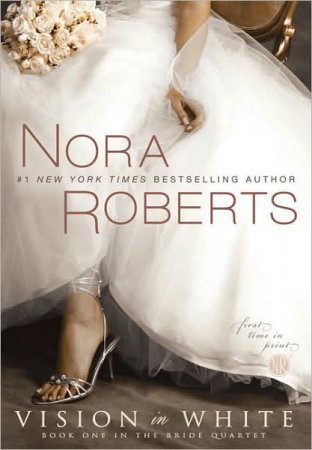 Vision in White
Vision in White True Betrayals
True Betrayals The Next Always
The Next Always A Man for Amanda
A Man for Amanda Born in Fire
Born in Fire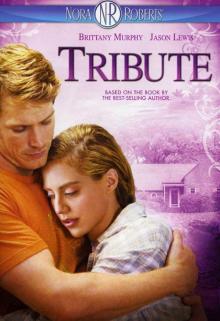 Tribute
Tribute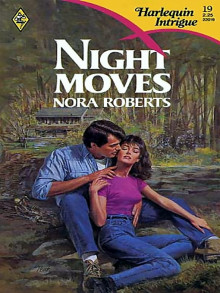 Night Moves
Night Moves Dance Upon the Air
Dance Upon the Air The Name of the Game
The Name of the Game Jewels of the Sun
Jewels of the Sun River's End
River's End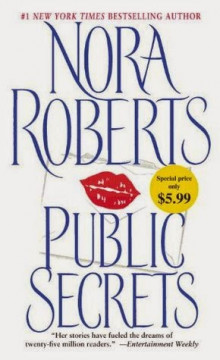 Public Secrets
Public Secrets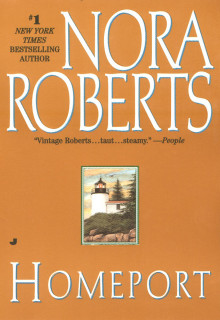 Homeport
Homeport Private Scandals
Private Scandals The Witness
The Witness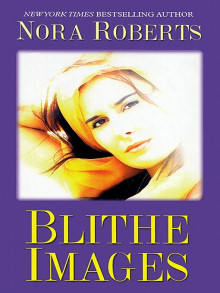 Blithe Images
Blithe Images Hidden Riches
Hidden Riches Key of Light
Key of Light Divine Evil
Divine Evil High Noon
High Noon Blue Dahlia
Blue Dahlia Sea Swept
Sea Swept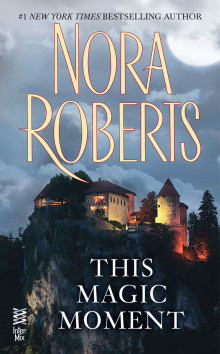 This Magic Moment
This Magic Moment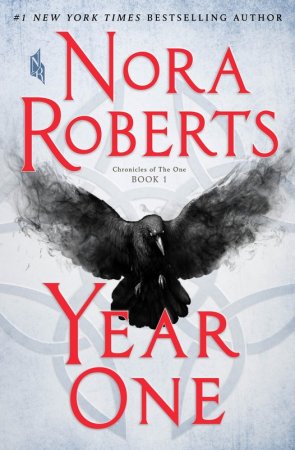 Year One
Year One A Little Fate
A Little Fate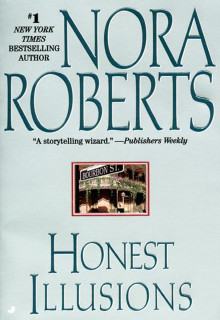 Honest Illusions
Honest Illusions The Reef
The Reef Shelter in Place
Shelter in Place The Hollow
The Hollow Holding the Dream
Holding the Dream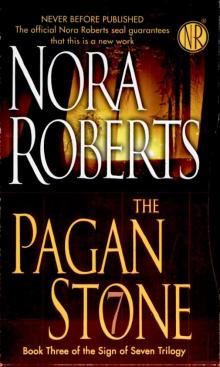 The Pagan Stone
The Pagan Stone Savour the Moment
Savour the Moment The Perfect Hope
The Perfect Hope Island of Glass
Island of Glass Happy Ever After
Happy Ever After Bed of Roses
Bed of Roses Stars of Fortune
Stars of Fortune Dark Witch
Dark Witch The Return of Rafe MacKade
The Return of Rafe MacKade Chesapeake Blue
Chesapeake Blue The Perfect Neighbor
The Perfect Neighbor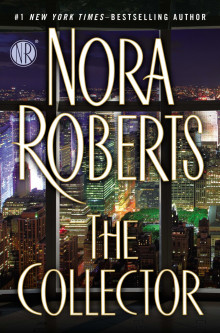 The Collector
The Collector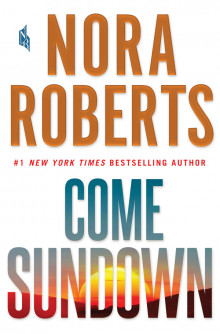 Come Sundown
Come Sundown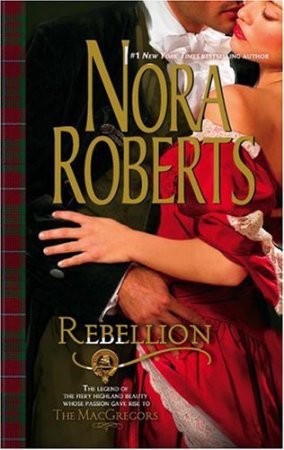 Rebellion
Rebellion Affaire Royale
Affaire Royale Daring to Dream
Daring to Dream Bay of Sighs
Bay of Sighs Blood Magick
Blood Magick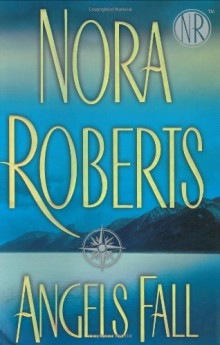 Angels Fall
Angels Fall Captivated
Captivated The Last Boyfriend
The Last Boyfriend Irish Thoroughbred
Irish Thoroughbred Inner Harbor
Inner Harbor The Right Path
The Right Path Night Shadow
Night Shadow The Heart of Devin MacKade
The Heart of Devin MacKade Shadow Spell
Shadow Spell The Playboy Prince
The Playboy Prince The Fall of Shane MacKade
The Fall of Shane MacKade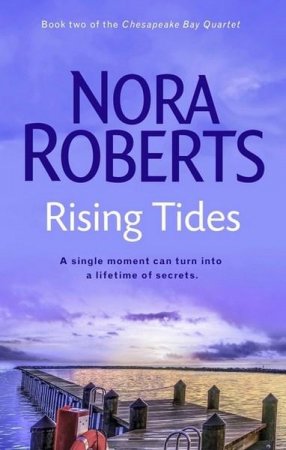 Rising Tides
Rising Tides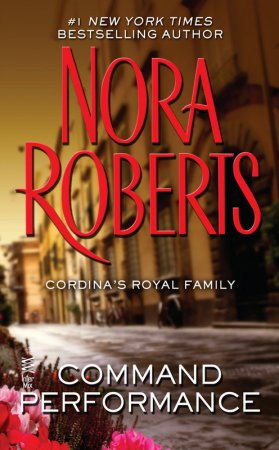 Command Performance
Command Performance Hidden Star
Hidden Star Cordina's Crown Jewel
Cordina's Crown Jewel The MacGregor Brides
The MacGregor Brides The Pride of Jared MacKade
The Pride of Jared MacKade Born in Ice
Born in Ice Whiskey Beach
Whiskey Beach The Last Honest Woman
The Last Honest Woman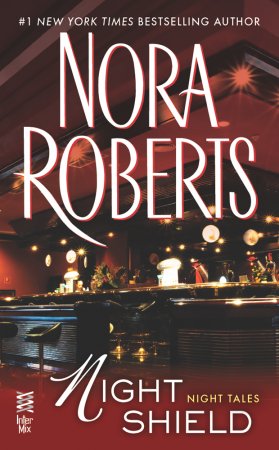 Night Shield
Night Shield Born in Shame
Born in Shame Secret Star
Secret Star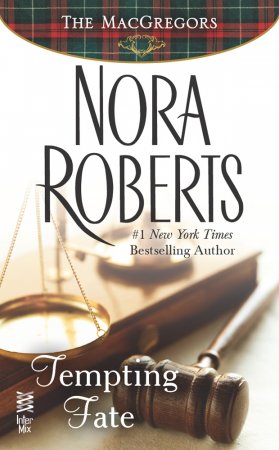 Tempting Fate
Tempting Fate Nightshade
Nightshade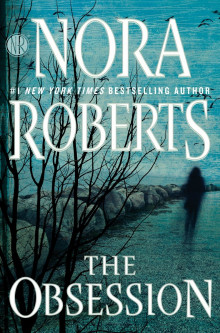 The Obsession
The Obsession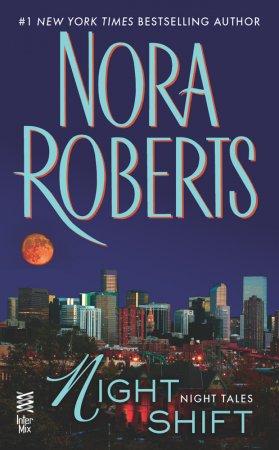 Night Shift
Night Shift Playing The Odds
Playing The Odds Tears of the Moon
Tears of the Moon One Man's Art
One Man's Art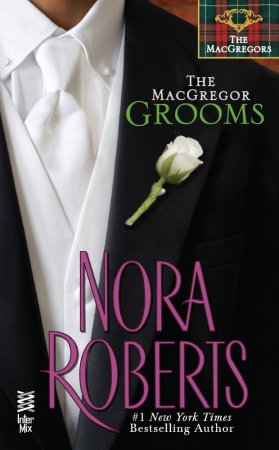 The MacGregor Groom
The MacGregor Groom Irish Rebel
Irish Rebel Morrigan's Cross
Morrigan's Cross In From The Cold
In From The Cold Night Smoke
Night Smoke Finding the Dream
Finding the Dream Red Lily
Red Lily The Liar
The Liar Montana Sky
Montana Sky Heart of the Sea
Heart of the Sea All The Possibilities
All The Possibilities Opposites Attract
Opposites Attract Captive Star
Captive Star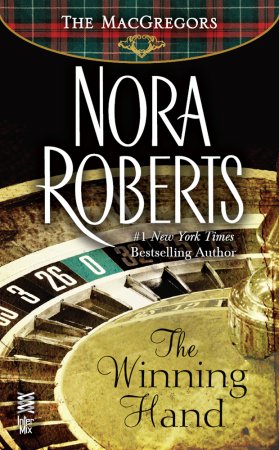 The Winning Hand
The Winning Hand Key of Valor
Key of Valor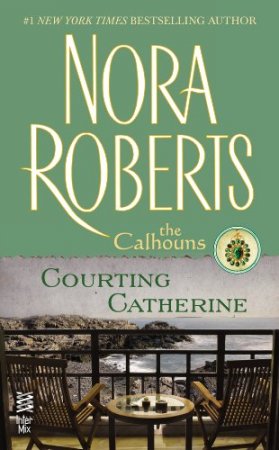 Courting Catherine
Courting Catherine Heaven and Earth
Heaven and Earth Face the Fire
Face the Fire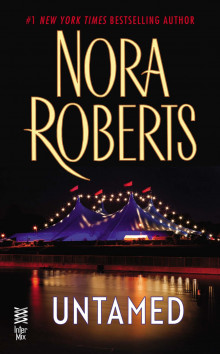 Untamed
Untamed Skin Deep
Skin Deep Enchanted
Enchanted Song of the West
Song of the West Suzanna's Surrender
Suzanna's Surrender Entranced
Entranced Dance of the Gods
Dance of the Gods Key of Knowledge
Key of Knowledge Charmed
Charmed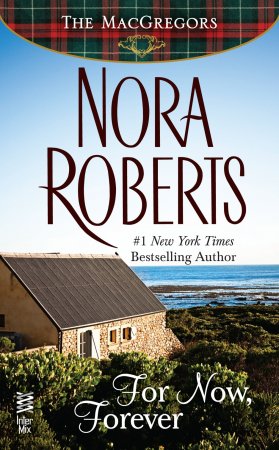 For Now, Forever
For Now, Forever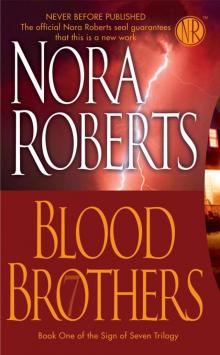 Blood Brothers
Blood Brothers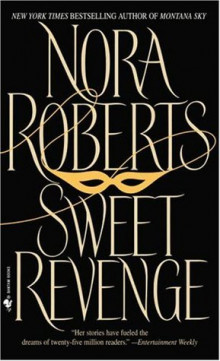 Sweet Revenge
Sweet Revenge Three Fates
Three Fates Mind Over Matter
Mind Over Matter Megan's Mate
Megan's Mate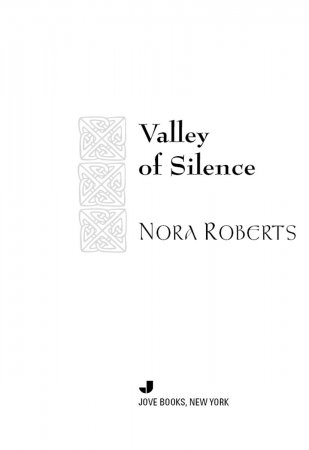 Valley of Silence
Valley of Silence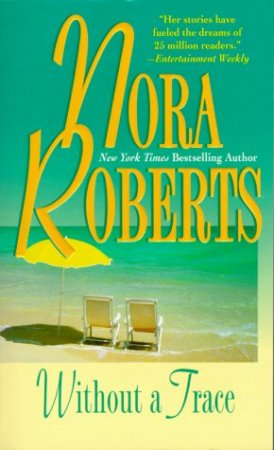 Without A Trace
Without A Trace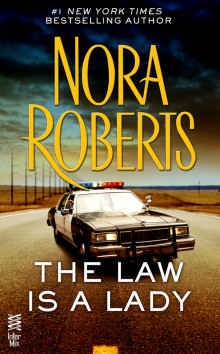 The Law is a Lady
The Law is a Lady Temptation
Temptation Dance to the Piper
Dance to the Piper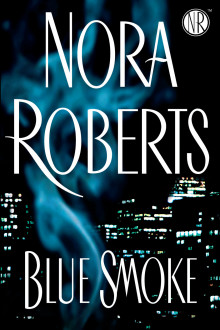 Blue Smoke
Blue Smoke Black Hills
Black Hills The Heart's Victory
The Heart's Victory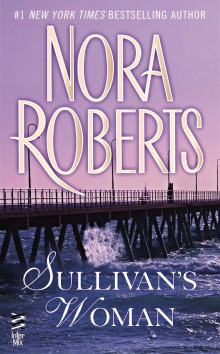 Sullivan's Woman
Sullivan's Woman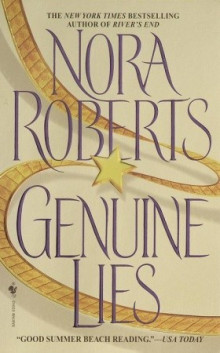 Genuine Lies
Genuine Lies For the Love of Lilah
For the Love of Lilah Gabriel's Angel
Gabriel's Angel Irish Rose
Irish Rose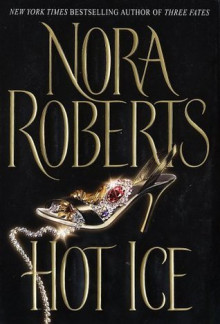 Hot Ice
Hot Ice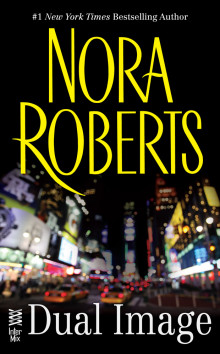 Dual Image
Dual Image Lawless
Lawless Catch My Heart
Catch My Heart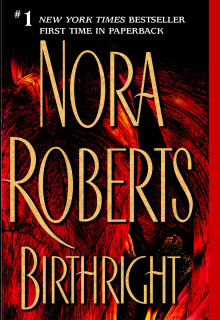 Birthright
Birthright First Impressions
First Impressions Chasing Fire
Chasing Fire Carnal Innocence
Carnal Innocence Best Laid Plans
Best Laid Plans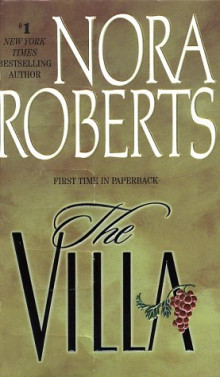 The Villa
The Villa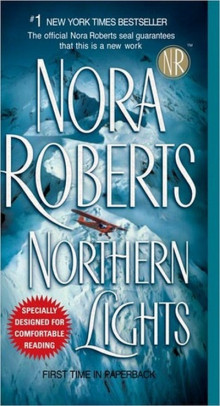 Northern Lights
Northern Lights Local Hero
Local Hero Island of Flowers
Island of Flowers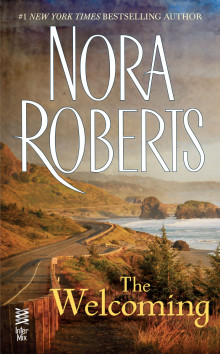 The Welcoming
The Welcoming All I Want for Christmas
All I Want for Christmas Black Rose
Black Rose Hot Rocks
Hot Rocks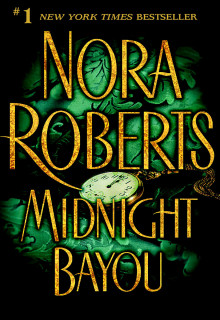 Midnight Bayou
Midnight Bayou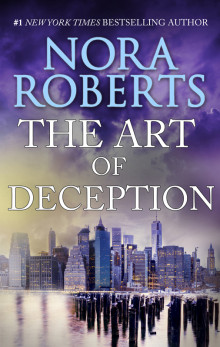 The Art of Deception
The Art of Deception From This Day
From This Day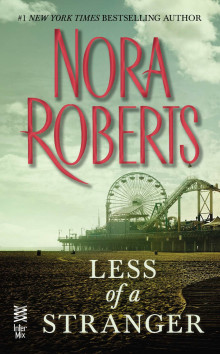 Less of a Stranger
Less of a Stranger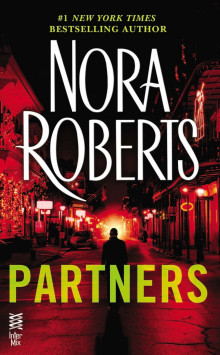 Partners
Partners Storm Warning
Storm Warning Once More With Feeling
Once More With Feeling Her Mother's Keeper
Her Mother's Keeper Sacred Sins
Sacred Sins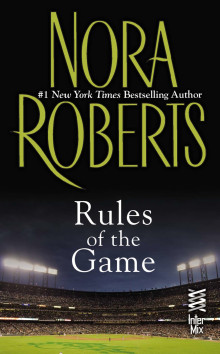 Rules of the Game
Rules of the Game Sanctuary
Sanctuary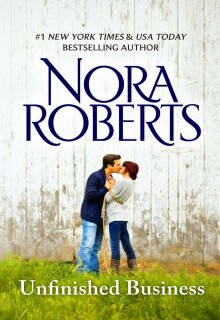 Unfinished Business
Unfinished Business Cordina's Royal Family Collection
Cordina's Royal Family Collection Dangerous Embrace
Dangerous Embrace One Summer
One Summer The Best Mistake
The Best Mistake Boundary Lines
Boundary Lines Under Currents
Under Currents The Stanislaski Series Collection, Volume 1
The Stanislaski Series Collection, Volume 1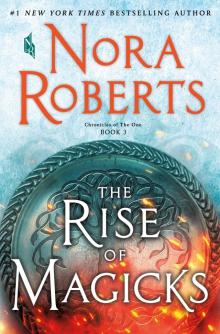 The Rise of Magicks
The Rise of Magicks The Rise of Magicks (Chronicles of The One)
The Rise of Magicks (Chronicles of The One) The Awakening: The Dragon Heart Legacy Book 1
The Awakening: The Dragon Heart Legacy Book 1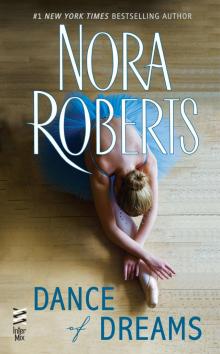 Dance of Dreams
Dance of Dreams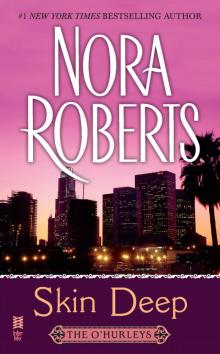 Skin Deep: The O'Hurleys
Skin Deep: The O'Hurleys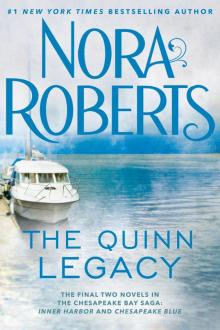 The Quinn Legacy: Inner Harbor ; Chesapeake Blue
The Quinn Legacy: Inner Harbor ; Chesapeake Blue![[Chronicles of the One 03.0] The Rise of Magicks Read online](http://i1.bookreadfree.com/11/chronicles_of_the_one_03_0_the_rise_of_magicks_preview.jpg) [Chronicles of the One 03.0] The Rise of Magicks
[Chronicles of the One 03.0] The Rise of Magicks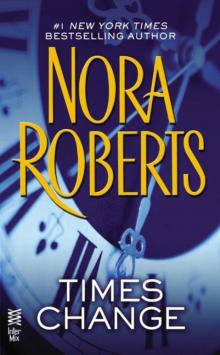 Times Change
Times Change Dance to the Piper: The O'Hurleys
Dance to the Piper: The O'Hurleys Christmas In the Snow: Taming Natasha / Considering Kate
Christmas In the Snow: Taming Natasha / Considering Kate Waiting for Nick
Waiting for Nick Summer Desserts
Summer Desserts Dream 2 - Holding the Dream
Dream 2 - Holding the Dream The Novels of Nora Roberts, Volume 2
The Novels of Nora Roberts, Volume 2 In the Garden Trilogy
In the Garden Trilogy Eight Classic Nora Roberts Romantic Suspense Novels
Eight Classic Nora Roberts Romantic Suspense Novels Best Laid Plans jh-2
Best Laid Plans jh-2 From the Heart
From the Heart Holiday Wishes
Holiday Wishes Dream 1 - Daring to Dream
Dream 1 - Daring to Dream Second Nature
Second Nature Summer Pleasures
Summer Pleasures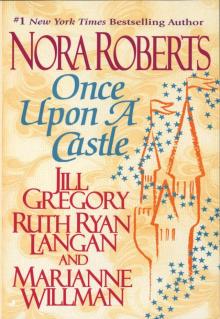 Once Upon a Castle
Once Upon a Castle Stars of Mithra Box Set: Captive StarHidden StarSecret Star
Stars of Mithra Box Set: Captive StarHidden StarSecret Star Impulse
Impulse The Irish Trilogy by Nora Roberts
The Irish Trilogy by Nora Roberts The Pride Of Jared Mackade tmb-2
The Pride Of Jared Mackade tmb-2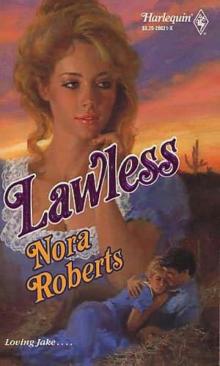 Lawless jh-3
Lawless jh-3 Taming Natasha
Taming Natasha Endless Summer
Endless Summer Bride Quartet Collection
Bride Quartet Collection Happy Ever After tbq-4
Happy Ever After tbq-4 Heart Of The Sea goa-3
Heart Of The Sea goa-3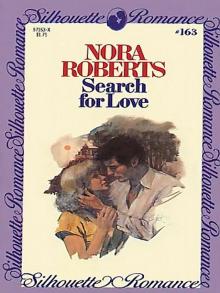 Search for Love
Search for Love Once upon a Dream
Once upon a Dream Once Upon a Star
Once Upon a Star Dream Trilogy
Dream Trilogy Risky Business
Risky Business The Novels of Nora Roberts, Volume 3
The Novels of Nora Roberts, Volume 3 Dream 3 - Finding the Dream
Dream 3 - Finding the Dream Promises in Death id-34
Promises in Death id-34 The Novels of Nora Roberts, Volume 4
The Novels of Nora Roberts, Volume 4 The Perfect Hope ib-3
The Perfect Hope ib-3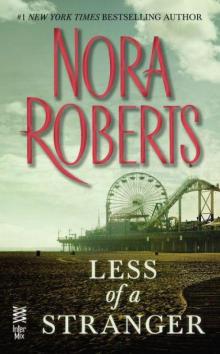 Less than a Stranger
Less than a Stranger Savour the Moment: Now the Big Day Has Finally Arrived, It's Time To...
Savour the Moment: Now the Big Day Has Finally Arrived, It's Time To... Convincing Alex
Convincing Alex Bed of Roses tbq-2
Bed of Roses tbq-2 Savour the Moment tbq-3
Savour the Moment tbq-3 Lessons Learned
Lessons Learned Key Of Valor k-3
Key Of Valor k-3 Red lily gt-3
Red lily gt-3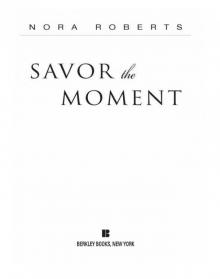 Savor the Moment
Savor the Moment The Return Of Rafe Mackade tmb-1
The Return Of Rafe Mackade tmb-1 For The Love Of Lilah tcw-3
For The Love Of Lilah tcw-3 Black Rose gt-2
Black Rose gt-2 Novels: The Law is a Lady
Novels: The Law is a Lady Chesapeake Bay Saga 1-4
Chesapeake Bay Saga 1-4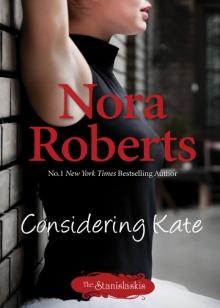 Considering Kate
Considering Kate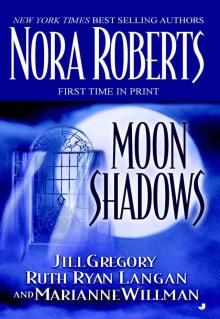 Moon Shadows
Moon Shadows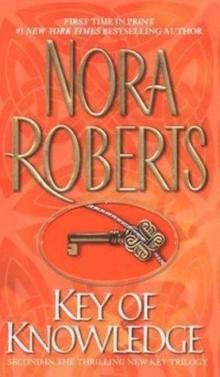 Key of Knowledge k-2
Key of Knowledge k-2 The Sign of Seven Trilogy
The Sign of Seven Trilogy Once Upon a Kiss
Once Upon a Kiss The Novels of Nora Roberts, Volume 5
The Novels of Nora Roberts, Volume 5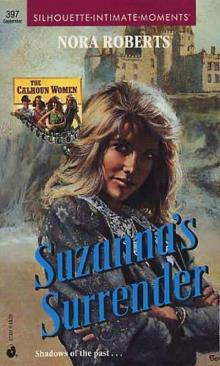 Suzanna's Surrender tcw-4
Suzanna's Surrender tcw-4 The Quinn Brothers
The Quinn Brothers Falling for Rachel
Falling for Rachel Brazen Virtue
Brazen Virtue Time Was
Time Was The Gallaghers of Ardmore Trilogy
The Gallaghers of Ardmore Trilogy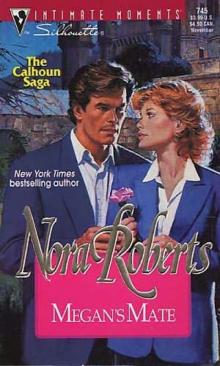 Megan's Mate tcw-5
Megan's Mate tcw-5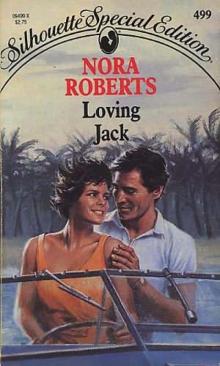 Loving Jack jh-1
Loving Jack jh-1 Rebellion & In From The Cold
Rebellion & In From The Cold Blue Dahlia gt-1
Blue Dahlia gt-1 The MacGregor Grooms
The MacGregor Grooms The Next Always tibt-1
The Next Always tibt-1 The Heart Of Devin Mackade tmb-3
The Heart Of Devin Mackade tmb-3 The Novels of Nora Roberts Volume 1
The Novels of Nora Roberts Volume 1 Treasures Lost, Treasures Found
Treasures Lost, Treasures Found Nora Roberts's Circle Trilogy
Nora Roberts's Circle Trilogy The Key Trilogy
The Key Trilogy The Fall Of Shane Mackade tmb-4
The Fall Of Shane Mackade tmb-4 A Will And A Way
A Will And A Way Jewels of the Sun goa-1
Jewels of the Sun goa-1 Luring a Lady
Luring a Lady